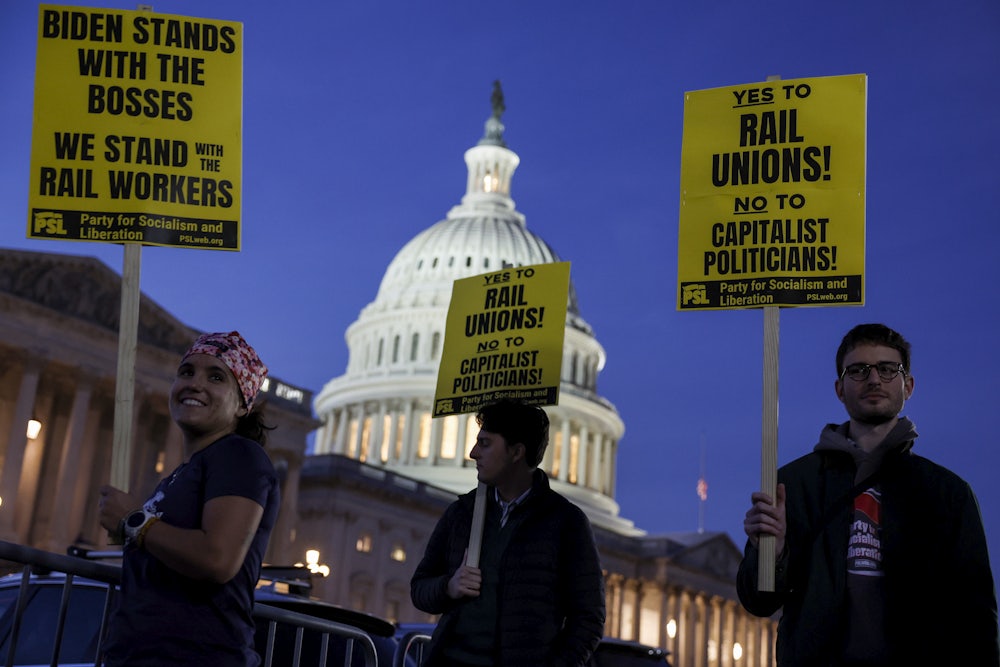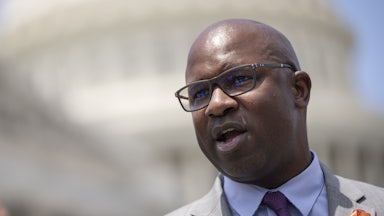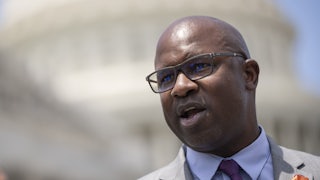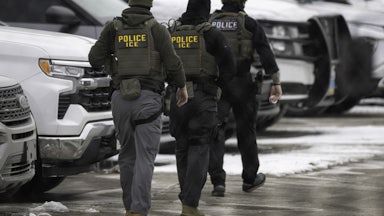From time to time the Democrats are given an opportunity to demonstrate that they’re still the party of the working class. They have one now, but it looks like they’re going to flub it.
A railroad contract negotiated in September by Labor Secretary Marty Walsh was voted down by four of the 12 unions needed to ratify it, including the biggest one, the International Association of Sheet Metal, Air, Rail and Transportation Workers, which represents train conductors. That left the Biden administration and Congress with four choices. They could have allowed a threatened rail strike to move forward; Biden could have imposed, unilaterally, a cooling-off period under the 1926 Railway Labor Act; they could, under the same law, have forced the parties to accept a modified version of the Walsh contract that addressed the unions’ objections; or they could have forced the parties to accept the Walsh contract.
Any one of the first three choices would signal that the Democrats retained their allegiance to organized labor, still the only institution in the United States that reliably represents the interests of the working class. But Biden chose the fourth and absolute worst option, compromising his credibility as a pro-labor president. It’s not too late for Senate Democrats to reverse this stance and reassert their party’s allegiance to working people. Even if they do, though, they won’t have the votes to deliver an improved contract.
None of the choices Biden faced was a good one. About one-third of freight travels by train. According to a report that the American Association of Railroads put out in September and that the unions don’t dispute, a rail strike would cost the economy more than $2 billion per day and would limit cities’ access to clean water, because the necessary chemicals (chlorine, sodium hypochlorite, etc.) can travel only by freight. Passenger service on Amtrak would be halted because freight railroads own and maintain 97 percent of the tracks Amtrak travels on. Inflation, which is starting to come under control, might surge.
These are all good reasons to avert a strike. (They’re even better reasons, as I argued in September, to nationalize the railroads.) But a rail strike wouldn’t likely last very long. The previous one, in 1992, lasted two days before Congress shut it down. Then-Senator Joe Biden voted against congressional intervention. “I am concerned about the serious effects of a continued shutdown of our nation’s rail system,” Biden said, continuing:
But I am also concerned that we are rewarding a concerted decision of the railroads that would have caused fevered expressions of outrage by industry had the unions taken a similar step.… The unions had serious questions about the seriousness of the railroads’ efforts to reach an agreement.
Not a word Biden uttered then would be out of place today, except insofar as 30 years of industry consolidation and downsizing and stock buybacks have made the situation much worse. The only upside to Wall Street’s growing dominance of the rail industry is that a rail strike would cause such mayhem in the financial markets that management would be even more desperate than in the past to end it. Did the economy spin out of control during the previous 48-hour strike, back when the economy was more dependent on rail freight than it is today? It did not. “Let it happen,” Michael Paul Lindsey, a locomotive operator for Union Pacific, who sits on the steering committee of Railroad Workers United, an inter-union “solidarity caucus,” told me. “It would only last a few days.”
The safest choice would have been for Biden to impose a “cooling-off” period as permitted under the Railway Labor Act (more precisely, to extend the one Biden first imposed in July). In Politico, Ben White reports that the White House never considered this because, according to an unnamed administration official, the rail unions never requested one. That’s a pretty lame excuse. The rail unions never requested that Biden and Congress force adoption of the Walsh contract either.
Greg Regan, president of the transportation trades department of the AFL-CIO, told me that extending the cooling-off period would have been a “massive mistake” because management is inflexible and prospects for improving the agreement at the bargaining table would be too dim. Also, he said, extending talks into January would risk imposition of a settlement less favorable to the unions by the incoming Republican House. An unnamed administration official quoted by White said the same. But Biden could veto any such settlement. And if it looked as though the House and Senate were about to override such a veto (which seems unlikely), the unions could take that risk into account. If the rank and file rejected a second agreement and Congress imposed a less favorable one over Biden’s veto, nobody could blame a sympathetic White House.
Management is intransigent because it’s confident that Congress won’t allow any disruption in rail service. As the U.S. Chamber of Commerce points out, over the past six decades the Railway Labor Act has been invoked no fewer than 18 times to prevent European-style rail strikes, most recently in October 1994. And indeed, on Wednesday the House voted 290–137 to impose the Walsh contract.
But by a narrower margin, 221–207, the House also voted for an alternative plan that would add to the Walsh contract seven days’ paid sick leave. Sick leave was the main sticking point in the contract negotiations; the unions requested 15 and got a single “personal” day instead. Time off was granted for three medical visits per year, but these had to be scheduled 30 days in advance and were limited to Tuesdays, Wednesdays, and Thursdays. Management has been inflexible on this point mainly because it’s committed to downsizing train crews. “They fired 45,000 people over the last seven years,” Regan told me; that was one-third of the workforce. The railroads want to reduce manpower even to the point of endangering worker safety. “Let us run the trains with one employee,” James M. Foote, chief executive of CSX, urged the Surface Transportation Board last April. That’s insane.
The House’s action mandating seven days’ paid leave was in defiance of Biden’s admonition that “however well intentioned, any changes would risk delay and a debilitating shutdown.” But in prepared comments after the House vote, Biden wasn’t foolish enough to object to the alternative plan. The Senate now has the option of ratifying either the House-passed Walsh contract or the House-passed modified Walsh contract with sick leave.
Nobody thinks the Senate will pass the sick leave option, because doing so would require Senate Democrats to pick up 10 Republican votes and maybe more if they lost support among their anti-labor cohort (Joe Manchin, Kyrsten Sinema, and Mark Kelly). Still, Senate Democrats would be well advised to demonstrate enthusiastic support for the sick leave bill, because Republicans are scrambling to position themselves as more pro-labor on this issue than Democrats. Let’s don’t forget that Democrats lost five percentage points among working-class voters in the midterms.
Florida Republican Marco Rubio has been posturing for some time as a working-class champion, and the railway bill gives him an opportunity to substantiate this absurd claim. Rubio says he won’t support “any deal that does not have the support of the rail workers.” Rubio isn’t the only Republican wolf donning sheep’s clothing. More Republicans (129) voted against imposing the Walsh contract than for it, including aspiring House Speaker Kevin McCarthy. The insincerity of this pro-worker stance was exposed by the subsequent roll call on the sick leave alternative, when all but three Republicans voted against (with Colorado’s Lauren Boebert, West Virginia’s David McKinley, and Illinois’s Adam Kinzinger not voting). The three Republicans who voted for sick leave—Pennsylvania’s Brian Fitzpatrick, New York’s John Katko, and Nebraska’s Don Bacon—voted also for the unmodified Walsh contract.
The Senate vote on the Walsh contract will take place later this week. Rubio and other Senate Republicans will line up against it and go all Joe Hill explaining why. Senate Democrats would be fools not to support the sick leave bill. Even if they do, though, it won’t pass, and that’s a lost opportunity for Biden. At the very least, this blunder obliges Biden to move more aggressively against rail consolidation before the two rail-freight duopolies in existence today (CSX and Norfolk Southern in the East; Union Pacific and BNSF in the West) devolve further into a single monopoly. The only railroad monopoly worth having is one that’s owned and maintained by U.S. taxpayers. Whatever Biden can do to advance that goal will be hailed by future generations.










